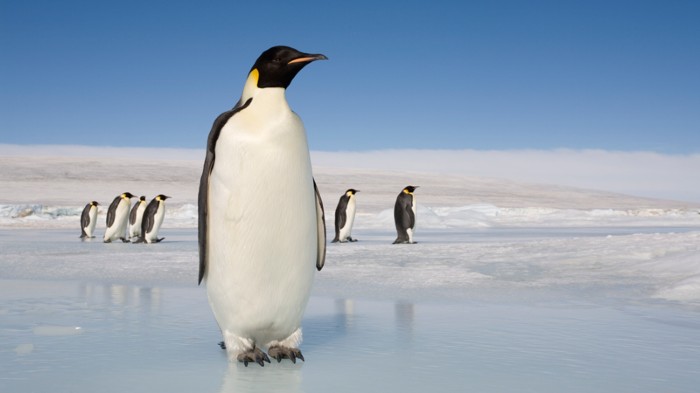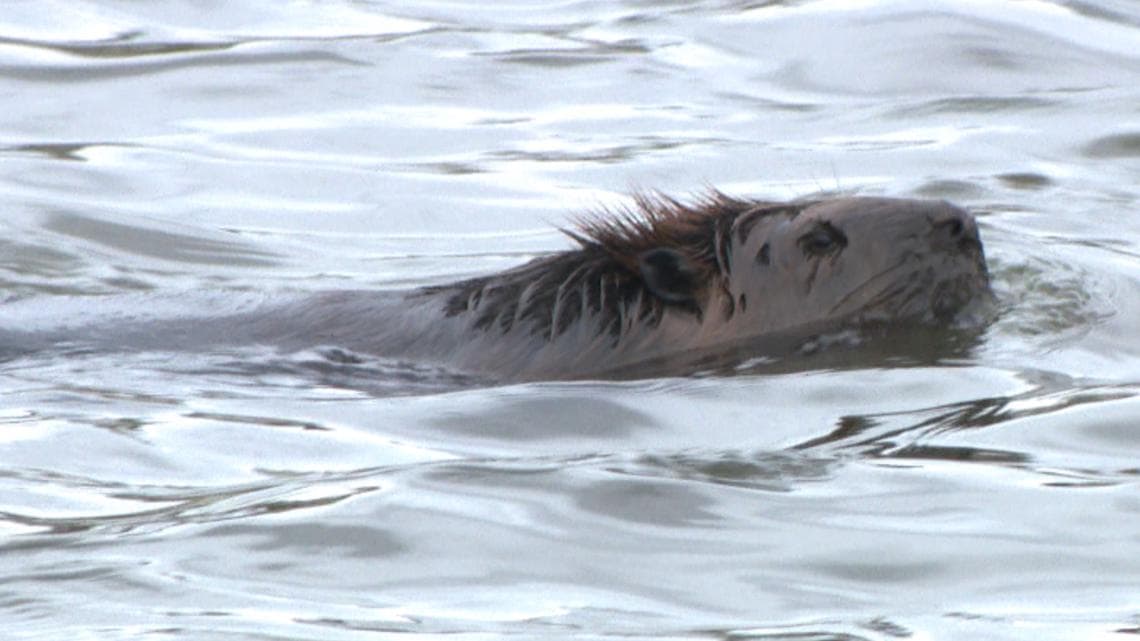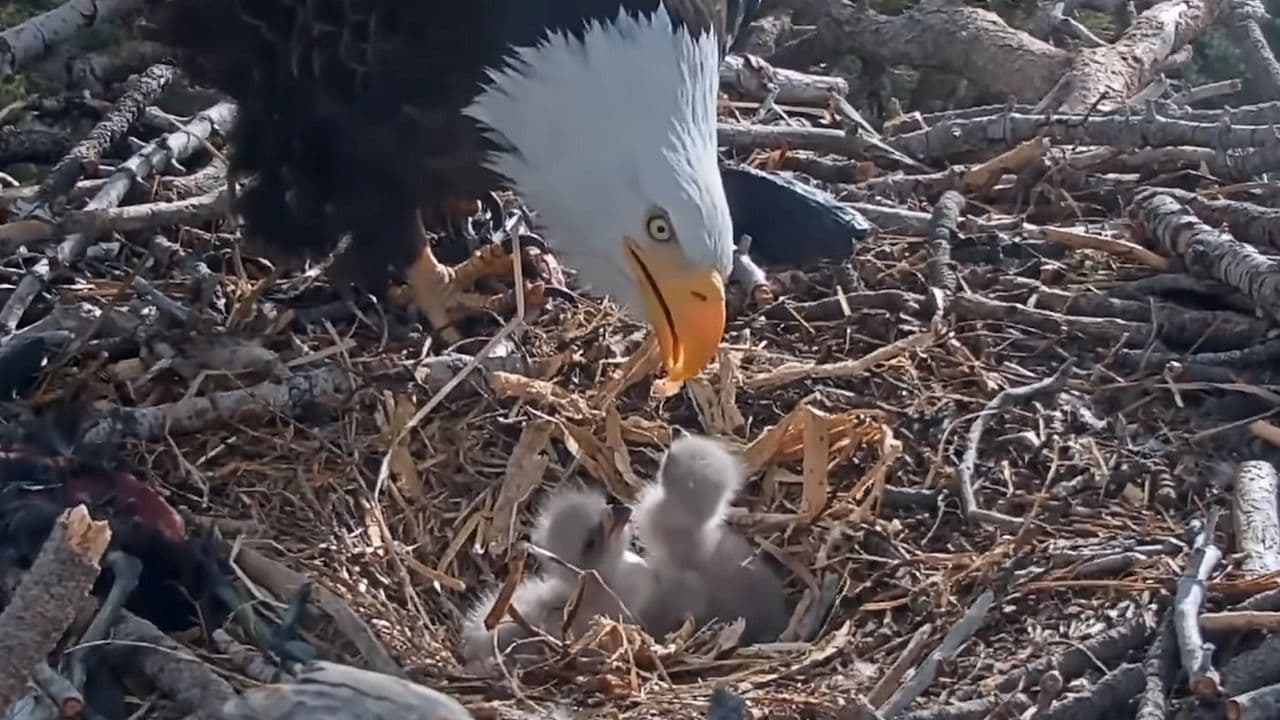
Amazing
Beautiful Magellanic Penguins Returned to Atlantic Ocean After Rescue
The Magellanic Penguin is known for its distinct black bat and white belly. Standing between 24 and 30 inches tall, the Magellanic Penguin was first discovered in 1520 by Ferdinand Magellan, through whom they received their names. While one of the most populous of the South American penguins, these flightless birds are not entirely without external threats from nature, man, and global warming. So when twelve black-and-white penguins were discovered off the coasts of Argentina while suffering from anemia and malnutrition, it didn’t take long for help to arrive.
Argentina and the Atlantic Ocean
What would you do if you discovered a dozen penguins struggling to survive? For biologist Sergio Rodriguez of the Mundo Marino Foundation, the answer was pretty simple — you help them. Rodriguez described how the animals were found waddling around in a state of dangerous malnutrition as well as dehydration, both potentially fatal issues if left unattended.
Rodriguez is one of the leaders at the Mundo Marino Foundation located near San Clemente del Tuyu in Argentina. Her job there is to provide support for the local wildlife while also researching various conservation issues.
To verify that the Magellanic Penguins were truly struggling through dehydration and malnutrition, Rodriguez used her experience in the field. Rodriguez said, “In some cases, they had issues molting.. for various reasons, including lack of nutrients.”
When penguins cannot properly molt, Rodriguez says that they lack the appropriate feathers necessary to survive in cold ocean water. With a lack of real protection due to their interrupted molding process, the penguins had fled to the beaches of Argentina because they lacked the ability to withstand the colder temperatures of the sea. Put plainly, a lack of food and access to water had put their lives at risk. Sergio would go on to say, “They needed to be treated with a balanced diet, provided by nutritionists.”
For Magellanic Penguins that are healthy and capable of thriving in the wild, a traditional diet will consist of crustaceans, cuttlefish, krill, and even squid. Diving to a depth of up to 50m, penguins will forage for food, finding a constant supply of resources along the way.
The Mundo Marino Foundation
Comfortably nestled into the Mundo Marino Foundation, the rescued penguins were able to receive a steady diet of appropriate nutrition from the team at the Mundo Marino Foundation. While staying at the Mundo Marino Foundation, the penguins would also receive comprehensive vet checkups as well as blood work to verify their overall health. The birds were lucky to get rescued as they were fed, rehydrated, and returned to the ocean in relatively short order.
Mundo Marino is the largest aquarium in all of Argentina, established by Juan David Mendez. The aquarium first opened its doors in 1979 where it was built next to a crab land. Mundo Marion currently houses 20 pools, 50 sea mammals, 80 birds, and the star of the show Kshamenko, a male killer whale who was rescued after he had been stranded.
According to research compiled by the International Union for Conservation of Nature and Natural Resources, there are somewhere between 2.2 million and 3.2 million Magellanic penguins in the world, today. Traditionally, these penguins can be found throughout coastal regions surrounding Chile and Argentina.
Amazing
Mother and Daughter Graduate Nursing School Side by Side—Two Years After Mom Donated Kidney to Save Her Life

In a story of grit, love, and second chances, a mother and daughter crossed the graduation stage together this spring—just two years after one saved the other’s life.
Ambrealle Brown, 34, dreamed of becoming a nurse. But that dream came to a halt in 2016 when she was diagnosed with Focal Segmental Glomerulosclerosis (FSGS), a rare and progressive kidney disease that forced her to leave school and rely on daily dialysis treatments lasting up to 13 hours.
As her condition worsened, Brown’s optimism faded. She was exhausted—physically and emotionally. The long wait for a transplant weighed heavily on her, and hope felt increasingly out of reach.
But her mother, Nija Butler, wasn’t ready to let her daughter give up. Although doctors initially said she likely wasn’t a donor match, Butler quietly went in for testing. She didn’t tell her daughter—she didn’t want to raise hopes unless it was certain. Then came the call: Brown had a match.
“She told me she was getting a kidney,” Butler recalled. “And I told her, ‘It’s me.’”
In March 2023, surgeons at Tulane University performed Louisiana’s first-ever robotic kidney transplant, using a minimally invasive technique that helped speed recovery for both women. With her new kidney and a renewed lease on life, Brown returned to nursing school. Inspired by her daughter’s determination, Butler decided to join her.
For the next 16 months, they studied side by side, pushing each other through the grueling demands of their program at Baton Rouge General School of Nursing. And in April, they both graduated—together.
“I couldn’t have done it without her,” Brown said. “Nursing school is hard, and having her by my side made all the difference.”
Brown is now set to begin work in a burns intensive care unit. Butler, 48, will continue her work in psychiatric care.
The two women hope their story encourages others to never lose hope—and to consider the lifesaving power of organ donation.
“As parents, we always say we’d do anything for our children,” Butler said. “And I meant it—with all my heart.”
Amazing
Scientists Reveal ‘Olo’: A Never-Before-Seen Color Created with Precision Laser Tech

In a stunning leap forward for vision science, researchers have unveiled a color no human has ever seen before. The new hue—named olo—is described as an intensely saturated blue-green that falls outside the boundaries of the natural human color spectrum.
Published in Science Advances, the study comes from a collaboration between scientists at the University of California, Berkeley, and the University of Washington. At the heart of the discovery is a new experimental tool dubbed Oz, a laser-based system that allows researchers to stimulate individual photoreceptors in the human retina with unprecedented precision.
“The Oz system represents a new experimental platform in vision science,” the study states. It works by isolating and activating just one type of cone cell—specifically, the M cones responsible for detecting green light—while bypassing the other two (S and L cones, which are sensitive to blue and red light, respectively). This kind of targeted stimulation isn’t possible under natural viewing conditions, where any light usually activates multiple types of cones at once.
In controlled experiments using laser light directed into the eyes of five participants—all with normal color vision—scientists were able to generate a perceptual experience unlike anything in nature. By activating only the M cones, participants reported seeing a blue-green shade that felt completely novel and extraordinarily vivid.
“By activating only the M cones, we elicited a color beyond the natural human gamut,” the researchers wrote. They described olo as a color of “unprecedented saturation.”
This discovery doesn’t just expand our understanding of color—it could also have practical implications. The Oz platform may pave the way for more advanced research into visual processing, new treatments or diagnostic tools for color blindness, and potentially even new types of displays capable of showing colors previously thought impossible to reproduce.
As the study concludes, “This new class of programmable platform will enable diverse new experiments,” including deeper exploration into how flexible and adaptable human color perception really is.
With olo, the boundaries of the visible world just got a little wider.
Amazing
From Wheels to Wonder: Paralysed Skater Transforms Old Boards into Bold Sculptures

When Nick Harding lost the ability to skateboard, he never imagined he’d find a new way to stay connected to his lifelong passion — through art.
In 2019, Nick was suddenly paralysed by Guillain-Barré syndrome (GBS), a rare auto-immune condition where the immune system attacks the nervous system. What started as a sore hamstring quickly escalated into a medical emergency. Within an hour of arriving at the hospital, he was on life support. He spent 13 weeks in intensive care at Southmead Hospital in Bristol and seven months in recovery, relearning how to walk and use his arms.
“Skating has always been a huge part of my life,” Nick said. “Having an outlet for that desire to play with my favourite toy is what brought the sculptures about.”
With his old decks stacked in a corner and his body still rebuilding strength, Nick began experimenting. His early attempts to make practical items were shaky — his hands lacked coordination — so instead, he focused on creating something beautiful. With no prior carpentry experience, he turned to YouTube tutorials, teaching himself to shape, sand, and finish colorful, psychedelic forms from the layered wood of worn-out skateboards.
The process helped rebuild his dexterity, but it also served as a mental anchor. “I just focused on doing a little bit every day,” he said. “It was the process that felt good when I was at my lowest.”
Now, Nick sells his sculptures through his Etsy shop Mobius Maples and has gained fans from around the world. His pieces — all carved from donated, broken, or retired boards — are abstract, swirling forms that capture the movement and spirit of skateboarding.
But for Nick, it’s not just about the art or even the recovery. It’s about staying connected to the Bristol skate scene that shaped him. He donates pieces to skate competitions and charity auctions and even hides small keychains around the city for his Instagram followers to find.
“It wouldn’t be anything if it was just me,” he said. “It’s also people who give me their old boards. Interacting with the art and letting me be involved with things is what’s kept it going.”
“I want it to be something that adds to the community, and I’m so grateful that I still have the opportunity to do that.”
Through creativity, community, and resilience, Nick Harding has transformed adversity into something both healing and inspiring — turning the boards that once carried him across pavement into lasting works of art.
Amazing
Community Petition Saves Wally the Beaver from Euthanasia

Wally, a beloved beaver who became a community favorite in Northern Virginia, was saved from euthanasia thanks to the efforts of thousands of supporters who rallied together through an online petition.
Wally first gained popularity at Huntley Meadows Park in Fairfax County, where locals and visitors often saw him hard at work building dams. However, wildlife officials considered euthanizing him after concerns arose over flooding and tree damage caused by his dam-building activities.
The community swiftly stepped in, launching a petition that quickly gathered over 10,000 signatures. Advocates argued that the beaver’s positive impact on the ecosystem—creating wetlands and habitats for other wildlife—far outweighed any inconveniences.
Local officials eventually agreed, opting instead for a humane relocation effort. Wally will now be safely moved to a suitable habitat rather than being euthanized.
“This shows how much our community values wildlife,” said Julie Ames, the petition’s creator. “We’re thrilled our voices were heard.”
Residents celebrated the decision, highlighting how Wally’s survival symbolizes the growing awareness of peaceful coexistence with local wildlife.
Amazing
Third Eaglet Joins Big Bear’s Beloved Bald Eagle Family

A third eaglet hatched yesterday in the much-loved bald eagle nest near Big Bear Lake, marking a delightful moment for the growing number of wildlife enthusiasts who have been closely watching the family online.
The nest, located in the San Bernardino National Forest near Big Bear, California, has been streaming live via the Friends of Big Bear Valley eagle cam. Observers were excited to witness the third chick hatch, a significant event considering that bald eagles usually lay two eggs, with three being somewhat unusual.
The parents, affectionately named Jackie and Shadow, are local celebrities among bird watchers. According to the Friends of Big Bear Valley, these parents have gained fame for their caring behavior, ensuring their chicks remain healthy and thriving despite the occasional harsh weather conditions.
“The hatch was smooth and perfectly timed,” said Sandy Steers, executive director of Friends of Big Bear Valley. “It’s heartwarming to see this family continue to flourish.”
Wildlife experts emphasize the importance of maintaining a respectful distance, reminding the public that the best way to enjoy and protect these birds is by observing remotely via the eagle cam.
Viewers can continue to monitor the eaglets’ development, celebrating each milestone as the chicks grow into young eagles over the coming weeks.
-

 OMG7 years ago
OMG7 years agoA Couple Gave Birth to the Most Beautiful Twins Ever
-

 OMG8 years ago
OMG8 years ago20 Rare Historical Photos
-

 OMG7 years ago
OMG7 years agoHilarious Airport Photos
-

 Cute7 years ago
Cute7 years agoMom Refuses to Let Daughter Eat Sugar and Years Later This is What She Grows Into
-

 OMG7 years ago
OMG7 years agoTop Secret Air Force One Facts That You Never Knew
-
OMG7 years ago
The Funniest Yearbook Photos Of All Time
-

 OMG7 years ago
OMG7 years agoRetired Mathematician Restores Log Cabin
-

 OMG6 years ago
OMG6 years agoWhat Happened When This ‘Duck Dynasty’ Legend Chopped Off His Beard?